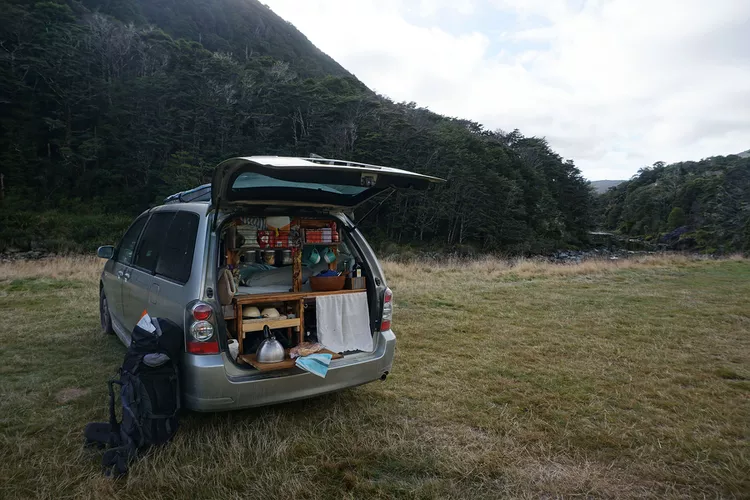Summary
After driving more than 15,000 miles around New Zealand in a campervan, here’s what I learned along the way.

Before venturing into campervan travel, I had no driving experience. However, when New Zealand’s borders closed in March 2020, I embraced the opportunity after some nerve-racking lessons. Owning a campervan transformed my exploration of New Zealand, providing me a newfound sense of freedom.
Traveling in a campervan is arguably the best way to experience New Zealand. The country is laden with gorgeous scenery, plentiful campsites, predominantly mild weather, and a compact layout. With a bed on wheels, I have awoken by the majestic Pacific Ocean, nestled in lush rainforests, and high upon mountain plateaus.

Having logged over 15,000 miles across New Zealand’s roads while camping solo, here are essential insights for those contemplating a similar adventure.
1. Embracing the Freedom of Campervan Travel
The joy of solo travel enables you to choose a nimble campervan that maneuvers easily through New Zealand’s narrow roads—particularly beneficial for novice drivers. A simple setup with a bed, storage, and kitchenette suffices. Trust me, you don’t need an elaborate table or couch; I haven’t needed my table in nearly two years.
If your stay in New Zealand is short, consider rental companies like Epic Campers or Mad Campers. However, if your plans allow for an extended stay, purchasing a camper with gear you can resell afterward can be more cost-effective. There’s a robust market on Facebook Marketplace for this purpose.
2. Practicality is Key
Initially, I decorated my campervan kitchen with potted plants and organic linen sheets, but these quickly succumbed to the elements. Don’t be deceived by stylized van-life photos; reality demands a practical approach. The majority of the time, my belongings are tucked away in every nook, while I contend with sand settling into every available space.

Thorough packing is essential. Useful items include a pocket knife, a five-liter water container, a solid cutting board, and a quick-drying towel. Conversely, avoid unnecessary cutlery sets, wine glasses, and multiple plate sizes. A simple bowl, spoon, and bottle suffice despite the extensive kitchen setup.
3. Exploring Varied Campsites
Camping is integral to New Zealand culture, providing numerous options for overnight stays. Utilize the Rankers camping app for locating nearby campsites. If you’re in a self-contained campervan, enjoy the benefits of free overnight parking in freedom camps—often located at scenic car parks with public restrooms. However, read reviews to avoid unsafe areas.

I alternate between free camps and Department of Conservation (DOC) campsites. These beautifully scenic sites, set within public conservation land, are affordable—from $5 to $20 NZD—for basic amenities like water and compost toilets, with some even providing cold showers. After my longest period without a shower lasting two weeks during hot January, a cold shower felt like a luxury.
For those craving comfort, choose a holiday park for hot showers and cooking facilities, although these cater primarily to families or retirees with larger motor homes and typically range from $20 NZD per night.
4. Importance of Driving Safety
Throughout my travels, I’ve felt secure in campgrounds. However, safety precautions are vital; always lock your doors and secure belongings. Keeping friends updated on your itinerary is prudent. As I often retire before dark, summer travels are easier with daylight until 9 p.m. During the darker winter months, I download reading materials and podcasts to keep entertained in the evenings.

The main safety concern arises from the inability to share driving responsibilities. Pace yourself; only tackle realistic distances daily, as New Zealand’s roads can be narrow, steep, and winding. Furthermore, aggressive drivers can exacerbate the stress of slower travel. Drive cautiously and, if necessary, pull over to allow faster vehicles to pass.
5. Embrace Your Own Company
Traveling solo in a campervan can sometimes feel isolated. Despite friendly welcomes at campgrounds, fellow travelers often maintain distance. I anticipated camaraderie but seldom encountered it, even carrying a bottle of wine for a year, only to consume it alone.
Overall, exploring New Zealand alone in a campervan might not always be glamorous, yet it remains a liberating, exciting, and unforgettable experience.





